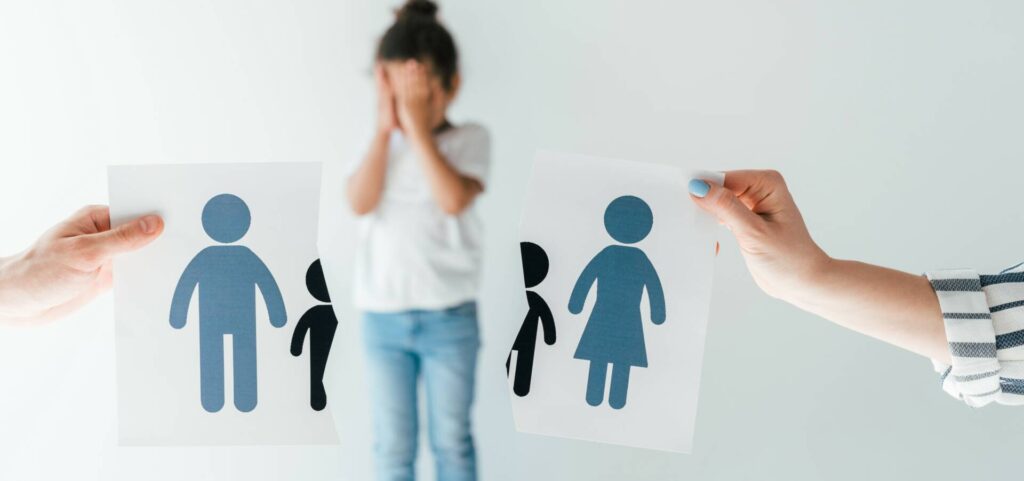Finding out that your child has been abused, neglected, or otherwise mistreated in any way is one of the worst experiences a parent can have. It is only made worse when your ex, often the child’s other parent, turns out to be the one that was abusing them.
Today we’re going to look at what you should do if you suspect that your ex is abusing your child. We’ll start by looking at how you go about confirming your suspicions and who you should contact first. Then we look at how a protective order could help to keep your family safe. Finally, we’ll finish with a discussion on parental rights, their termination, and what it means for your ex.
What Are the First Steps I Should Take If I Suspect My Ex Is Abusing Our Child?
The first thing that you should do is to try to confirm your suspicions. An accusation of child abuse can cause a lot of havoc and if at all possible you should ensure that you don’t make a false accusation.
Often the easiest way to get confirmation of your suspicions is to speak with the child themselves. Some children will readily admit to the abuse. However, many children are warned by their abusers that worse will happen to them should they tell. In these cases, your child is unlikely to admit to abuse occurring. But most parents have a strong sense of when their child is telling the truth and when they are leaving something out. If you suspect that there is more going on than they admit, then continue investigating.
If you suspect abuse, then you may want to seek out a medical professional’s opinion. While their opinion alone does not constitute proof, if they believe that the child’s injuries could have been caused by abuse then you should retain the services of an attorney and together notify the police. Once the police are involved it may be necessary to arrest your ex and issue a protective order to keep your child safe.
How Does a Protective Order Help?
A protective order can help to keep you and your child safe. When abuse is reported, you will likely obtain a temporary or an emergency protective order. While the words temporary or emergency may not sound reassuring, don’t worry. These orders are temporary because they’re meant to go into effect immediately while the family court works to issue a permanent order.
Permanent protective orders don’t all function the same. Determining when they run out can only be done by a judge. Typically, however, they will last a set number of years that the judge picked, until the child reaches a set age, or until the order is done away with by commencing a formal legal process. Of these, it should be noted that dissolving a protective order through legal action is the most difficult. It takes a lot of effort to get rid of a permanent protective order.
A protective order can prevent your ex from partaking in a number of activities. Don’t forget, however, that a protective order cannot prevent them from partaking in these activities but rather it punishes them for their actions. Activities that could be prohibited through a protective order include:
- Physically following your child
- Contacting the child by phone
- Dropping off or placing objects on the property for the child to find
- Appearing within sight of the child
- Showing up at the child’s school or at your home
- Preventing you from retrieving the child’s belongings
- Approaching or confronting the child in public or on private property
- Entering onto your property
- Sending emails, text messages, or other communications to the child
- Preventing the child from going to school or otherwise using their body as they see fit
If they should break any condition of the protective order then they could be facing imprisonment, steep fines, or other forms of punishment. If you suspect your ex of violating the protective order then the best course of action is to speak with an attorney to learn more about what could be done.
For those who are unable to seek a protective order or for whom a protective order is not enough support, there are also lots of local resources such as shelters, support groups, social workers, and counseling which an attorney can help you to make use of. These are often vital tools in overcoming the emotional, rather than the legal, aspect of dealing with child abuse.
Can My Ex’s Parental Rights Be Terminated?
Depending on the circumstances, it is possible that your ex’s parental rights could be terminated. When this happens because of child abuse, it is incredibly difficult to get custody or visitation rights back again in the future.
However, your ex would still have to live up to their parental responsibilities such as paying child support. It is also likely that the child support payments will increase, because the abusive parent will no longer have time with the child and therefore the financial burden on the custodial parent increased.
Note, however, that if your ex chooses to give up their parental rights voluntarily then it isn’t nearly as difficult to get custody or visitation rights back in the future. But when child abuse is a factor, it is more likely that they will face involuntary termination of their parental rights rather than be given the choice to terminate them themselves.
Can An Attorney Help Me If I Suspect My Ex Is Abusing Our Child?
An attorney may very well be your best friend in this situation. They are the individual who has the greatest ability to ensure that your ex faces legal consequences for their actions. They’ll be able to help you gather evidence, prove to the court what your ex did, and ensure that you and your child have a safe, brilliant future ahead of you.
They’re also going to be less emotionally involved, which will help them to weigh the importance of each piece of evidence, build arguments that will move the court, and stay calm when you’re anxious.












